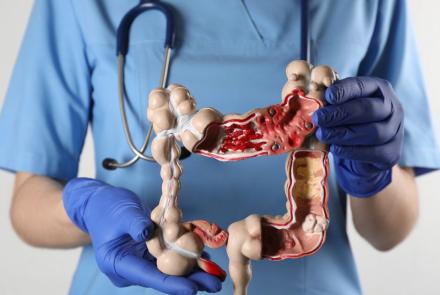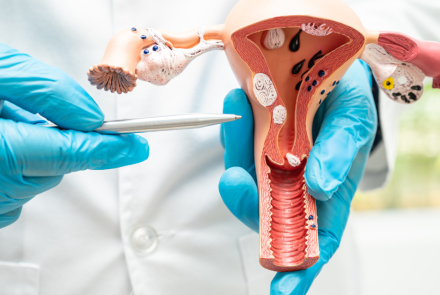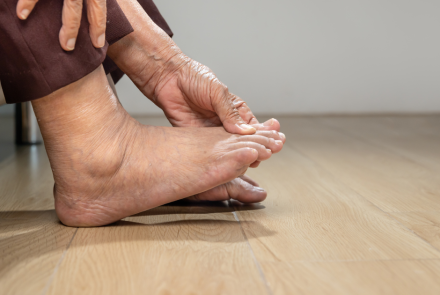Eating disorders are not just about food. They are real, treatable illnesses. They include anorexia nervosa—eating extremely small amounts of food; bulimia nervosa—consuming large amounts and then purging the body to compensate; and binge-eating—consuming extremely large amounts of food.
Sometimes a person with an eating disorder starts out just eating less or more than they used to, but the obsession with food becomes all-consuming. Eating disorders often appear in the teen years or young adulthood. Rates among females are 2 ½ times greater than among males.
A person with an eating disorder may also have other illnesses such as depression, anxiety disorders or a substance use disorder. Eating disorders can be life-threatening if not treated. "These are very serious medical conditions," says family physician Dr. Kenneth Svensson. Fortunately, he notes, a person with an eating disorder who receives proper medical care can regain regular eating habits, and return to better emotional and psychological health.
Anorexia nervosa
People with anorexia may see themselves as overweight, even when they are extremely underweight. They become obsessed with food and controlling their weight. They may weigh themselves often and eat only small quantities of specific foods. "A person with anorexia may go unnoticed for a long time, because they may wear loose clothing to hide their weight loss," Dr. Svensson says.
Symptoms of anorexia include:
- Extremely low body weight
- Refusal to eat and denial of hunger
- Relentless pursuit of thinness
- Intense fear of gaining weight
- Distorted self-image
- Lack of menstruation
- Excessive exercise
Bulimia nervosa
People with bulimia frequently eat an unusually large amount of food, and feel out of control about their eating. They compensate for overeating by behavior such as forced vomiting, using laxatives or diuretics, fasting, exercising excessively, or a combination. This cycle can be repeated at least several times a week, usually in secret. In serious cases a person can binge and purge several times a day. People with bulimia usually are a normal weight, or only slightly overweight. But they fear weight gain, and are obsessed with losing weight. Symptoms include:
- Chronically inflamed and sore throat
- Swollen salivary glands in the cheeks
- Damaged teeth and gums as a result of exposure to stomach acid
- Acid reflux disorder and other stomach problems
- Intestinal distress and irritation from laxative abuse
- Severe dehydration from purging of fluids
Binge-eating disorder
People with binge-eating disorder lose control over their eating, and are often overweight or obese. Their guilt and shame about overeating can lead to a cycle of more binge-eating. Treatment for eating disorders is multidisciplinary, meaning it requires a team-based approach. "The family physician plays a central role in monitoring and treatment of the patients but treatment generally also involves a psychotherapist and dietician," Dr. Svensson says. Treatment can include a combination of individual, group, and/or family psychotherapy; medical care and monitoring; nutritional counseling; and medications. Patients who are very underweight or malnourished may need to be treated in the hospital.






